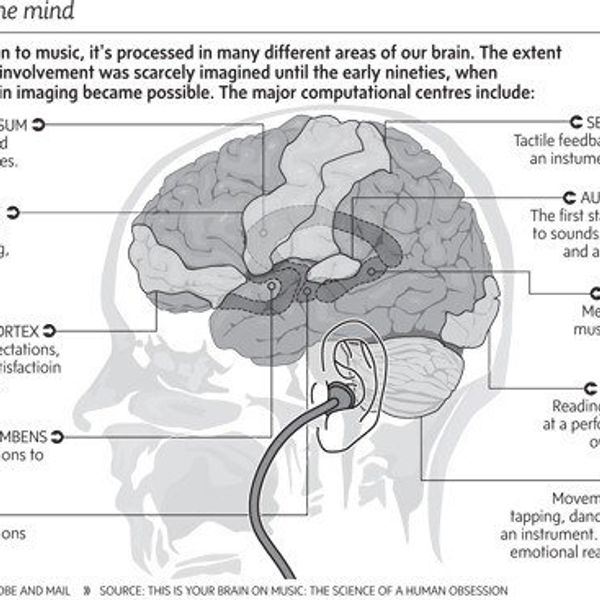Whether it’s heavy metal or soft jazz, music has a way of intertwining with and even manipulating our emotions. Music is such a crucial part of culture and life around the world. However, there’s so much more to music than meets the eye.
After years of a sharp decline on music programs in schools, many school districts are bringing back the classes that they once cut. Listening to music causes the majority of students work better. Musical education helps students get into better colleges and students involved in music programs tend to achieve better grades overall than their non-musical peers. Also, students who perform music or frequently listen to music while the work and study tend to be less stressed. For these reasons, and many more, schools have returned funding to their music departments and performing arts schools are popping up all over the nation.
Music has been scientifically proven to have health benefits. Studies suggest that music can be used to treat pain, depression and possibly even Alzheimer’s. Music is extremely influential in therapy for stress management because of its ability affect people both mentally and physically. Trained professionals use techniques like biofeedback and guided imagery to help patients who struggle with stress, memory and other disorders.
Music can reduce one’s stress and anxiety and further promote relaxation, especially when paired with other therapeutic techniques. In fact, because music is mainly processed in nonverbal areas of the brain, it proves to be more effective at soothing a patient than verbal stimuli.
“The Mozart Effect” is the ability of music to improve learning and memory. Scientists at the University of California at Irvine found that students had higher test scores when listening to classical music, rather than a relaxation tape or silence. Studies like this suggest that music is tied to the same parts of the brain that process memories. Finding like this led to music, especially classical music, being used to help those suffering of Alzheimer’s disease and dementia. It has been found that musical aptitude and music appreciation are two of the last remaining abilities in these patients. Therefore, music becomes the last bridge of communication with them.
Overall, music can be an emotional outlet and improve one’s cognitive abilities. Music is instrumental in helping those who suffer from stress, depression, Alzheimer’s, among other things. Without music, the world would not only be dull, but less cognitively sound.
“Music expresses that which cannot be put into words and that which cannot remain silent.”
-Victor Hugo




















